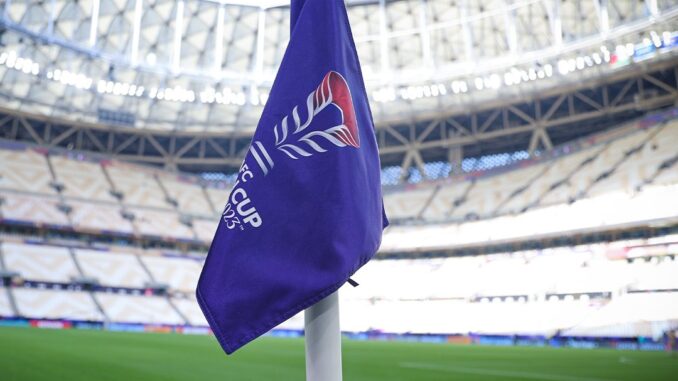
History beckons and immortality awaits for whoever emerges victorious from one of the most unlikely AFC Asian Cup finals; Qatar facing off against Jordan at Lusail Stadium cannot have been on many observers’ list of possible deciders.
And yet, here we are, with a defending champion that has looked anything but a member of the Asian elite over the last two years, overcoming all manner of issues to qualify for a second successive final, where they will meet a side no-one backed to make a run this deep.
The Jordanians have been the story of the Asian Cup, the rank outsiders who upset the odds to move to within one step of glory and the most unexpected title win.
Hussein Ammouta’s team put their credentials on display early in the tournament with their 2-2 draw against Korea Republic in the second round of group matches. It was a result and performance that caught the attention.
Robust, direct and with the exciting attacking talents of Yazan Al-Naimat and Moussa Al-Taamari, the Jordanians have been backed by an ever-growing fan base, increasingly ratcheting up the noise levels to spur their team to even greater heights.
It has not been without an element of good fortune, Ammouta’s team prevailing over Iraq in the last 16 due to Aymen Hussein’s foolish sending off for over-celebrating and his side’s resulting collapse in injury time.

That the Jordanians have taken their opportunities, not only to overcome the Iraqis but to edge a narrow win over Tajikistan and then claim a 2-0 victory over a Korean side struggling with fatigue and long-standing defensive issues, says much about their determination.
Now they stand 90 minutes away from a result as remarkable as any in Asian Cup history. Few achievements can compare.
When a war-ravaged Iraq won the title in 2007 it was a title rightly hailed around the world, but this was a nation that had been at the forefront of the Asian game in the past, qualifying for the 1986 World Cup and regularly a dominant force in Gulf football.
Qatar’s victory in the United Arab Emirates in 2019 came against a backdrop of political tension and division with their neighbours, yet the team was benefitting from the long-term work being done in preparation for country’s 2022 FIFA World Cup hosting.
Jordan, in contrast, have only twice previously advanced to the quarter-finals of the Asian Cup and this is the country’s fifth finals appearance since the competition began in 1956.
There was heartache in 2004 with Al-Nashama’s controversial penalty shoot-out elimination at the hands of eventual champions Japan, while seven years later it was Uzbekistan who sent Adnan Hamed’s team home.
For them to stand on the cusp of success is a remarkable testament to the work being done by Ammouta and the Jordan Football Association.
“It’s not a surprise,” Qatar captain Hassan Al Haydos said when asked about Jordan’s run to the final. “We played a friendly with them and we lost (a 2-1 friendly defeat in early January).
“In the match we played against them we felt they would go far in the tournament and now we’re playing in the final. They play very good football. In every match they deserved to be where they are now.
“But the Qatar have team played a great tournament tactically, fighting on the pitch. This is why we and Jordan are playing in the final, even though we weren’t fancied for the title at the beginning.”
The hosts certainly came into the competition under a cloud, their dismal performance at their home World Cup and the recent loss of Carlos Queiroz as coach dampening any expectation Marquez Lopez could galvanize the squad for a serious challenge.
But since a statement 3-0 win over Lebanon in their opening game, Qatar have embarked on a run fueled by Akram Afif’s virtuosity, the former AFC Player of the Year almost singlehandedly spurring his team to success.
It is all a long way from those losses at the World Cup, a trio of anemic displays that suggested time was up for the side that had so defiantly delivered the Asian Cup in Abu Dhabi.
While this team lacks much of the cavalier spirit of the 2019 vintage – the absence of Abdulkareem Hassan has deprived the side of much of its personality – the hosts have ridden a wave of support that is setting them up to become only the fifth nation to win back-to-back titles.
Korea, Iran, Saudi Arabia and Japan are their forebears, the Japanese the last to achieve the feat with victory over China in Beijing in 2004. Qatar could be the first to go back-to-back in two decades.
And so they will return to the magnificent Lusail Stadium – perhaps the world’s finest football stadium – where their campaign started with a swashbuckling win over the Lebanese looking to complete the circle, both for 2023 and from 2019.
Photo: Asian Football Confederation
Listen to The Asian Game Podcast as we speak with Jordanian journalist Mahmoud Al-Fadli about their fairytale run to the final




